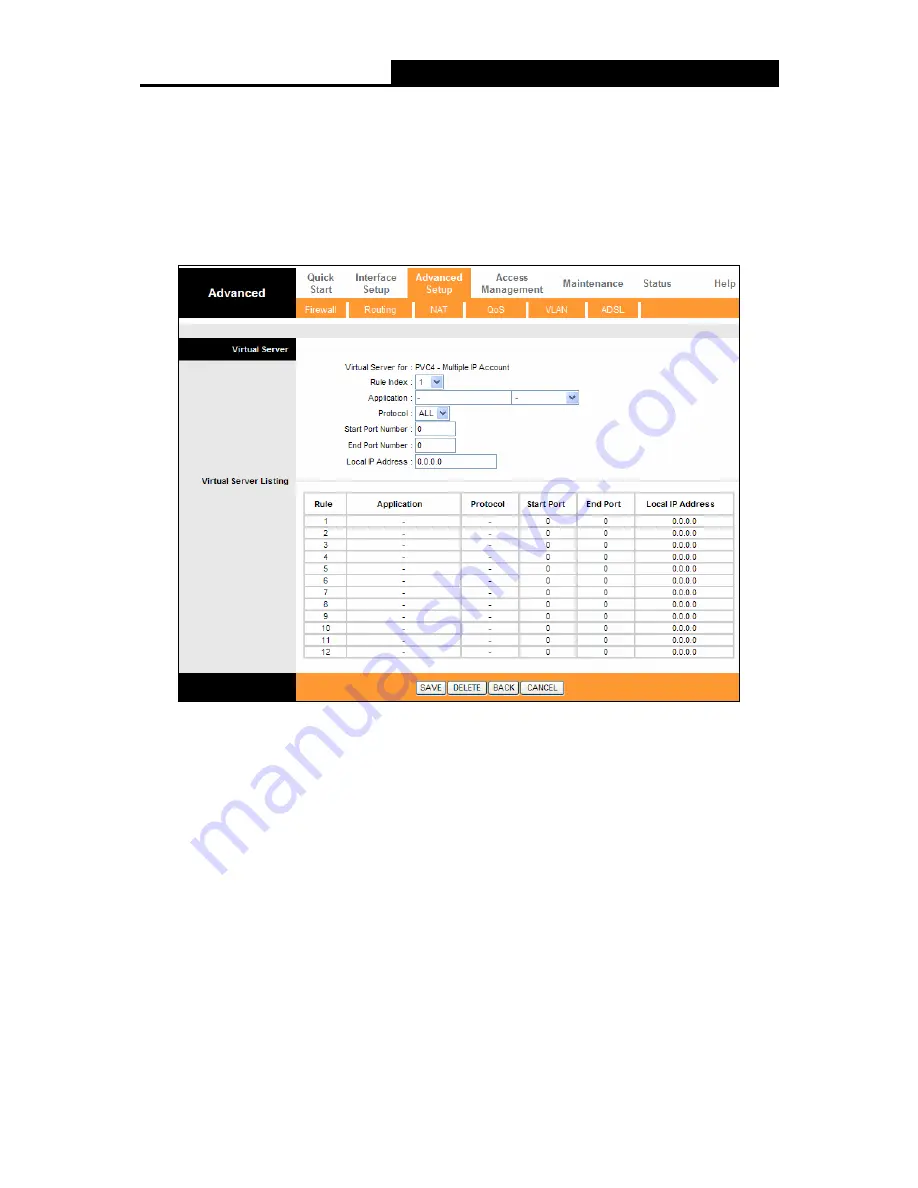
TD-8817
ADSL2+ Ethernet/USB Modem Router User Guide
34
4.4.3.2. Virtual Server
Choose “
Advanced Setup
→
NAT
→
Virtual Server
” in Figure 4-23, you can configure the Virtual
Server in the next screen.
The Virtual Server is the server or server(s) behind NAT (on the LAN), for example, Web server or
FTP server, that you can make visible to the outside world even though NAT makes your whole
inside network appear as a single machine to the outside world.
Figure 4-25
Rule Index:
The Virtual server rule index for this VC. You can specify 10 rules in maximum.
All the VCs with single IP will use the same Virtual Server rules.
Start
&
End port number:
Enter the specific Start and End Port number you want to forward.
If it is one port only, you can enter the same number for both the End port and the Start port.
For example, if you want to set the FTP Virtual server, you can set the start and end port
number to 21.
Local IP Address:
Enter the IP Address for the Virtual Server in LAN side.
Virtual Server Listing:
This displays the information about the Virtual Servers you establish.
To add a virtual server entry:
Step 1:
Select the “Virtual Circuit” and select “Number of IPs”. (shown in Figure 4-23).
Note:
For VCs with single IP, select
Single
; For VCs with multiple IPs, select
Multiple
for the
option.
Step 2:
Select the Rule index for the rule as shown in Figure 4-24.






























